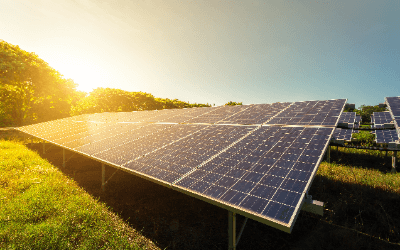What Is a Solar Generator?
 A Solar Generator is a device that supplies electricity generated by solar panels.
A Solar Generator is a device that supplies electricity generated by solar panels.
Generally speaking, a solar generator is a product that combines a portable accumulator, solar panels, and a power conditioner.
As an emergency power source, demand for this product has been improving in recent years.
Uses of Solar Generators
Solar Generators are used for camping and disaster situations. The solar panels generate electricity during the day while the stored power is used at night. Since they do not require a power grid, they are especially useful in emergencies.
Solar Generators can be broadly classified into two types: fixed and portable.
Examples of use are shown below.
- Emergency power source in the event of a natural disaster
- Independent power source for off-grid power generation
- Power supply for overnight stay in a car or camping
Principle of Solar Generator
A Solar Generator consists of a solar panel, a power accumulator, and a power conditioner. The solar panels convert sunlight into electricity, the converted electricity is stored in the accumulator, and then converted to a voltage that is easy to use with the power conditioner.
Solar panels are classified into two types: Silicon-Based and Compound-Based.
For Solar Generators, Amorphous Silicon and Polycrystalline Silicon solar panels are used.
1. Amorphous Silicon
Amorphous silicon is manufactured by placing a thin layer of amorphous silicon on a substrate such as glass. While its conversion efficiency is low, it is characterized by its light weight, productivity and versatility.
Compared to monocrystalline silicon and polycrystalline silicon, power generation conversion efficiency does not decline even at high temperatures.
2. Polycrystalline Silicon
Polycrystalline silicon is a low-cost version of solar panels made from silicon scraps generated during the production of monocrystalline silicon. While they generate less power than monocrystalline silicon, they can be manufactured at a lower cost.
Storage Battery for Solar Generator
Not only solar power generation, but also electric energy cannot be stored. Electricity transmitted from power companies is only generated in the required amount at that moment. The power company plans power generation while forecasting demand.
In Solar Generators, electricity is stored as chemical energy by means of storage batteries. Therefore, power is available even during power outages caused by natural disasters such as earthquakes and typhoons.
However, storage batteries are expensive, so the storage batteries in Solar Generators also account for a large proportion of their price. They also require temperature control, as their lifespan is affected by temperature. Solar Generators use lead-acid batteries or lithium-ion batteries.
The characteristics of each are described below.
1. Lead-Acid Batteries
Lead electrode plates are inserted into dilute sulfuric acid, the electrolyte. Lead dioxide is used for the positive electrode (anode) and lead for the negative electrode (cathode), and electricity is generated through a chemical reaction between the dilute sulfuric acid and the lead. In addition to Solar Generators, lead-acid batteries are also used in car batteries and uninterruptible power supplies.
Lead-acid batteries can be manufactured inexpensively, but they have the disadvantage of being heavy. They can be repeatedly charged and discharged, but their performance deteriorates when over-discharged.
2. Lithium-Ion Batteries
A lithium-ion battery uses lithium transition metal oxide such as lithium cobaltate for the positive electrode, carbon materials such as graphite or graphite for the negative electrode, and organic solvents for the electrolyte. It charges and discharges when lithium ions move between the positive and negative electrodes.
In addition to Solar Generators, they are also used in smartphone batteries. While lithium-ion batteries are compact, lightweight, and resistant to deterioration, they are vulnerable to temperature changes and expensive.
Other types of batteries include nickel-metal hydride batteries and NAS storage batteries.